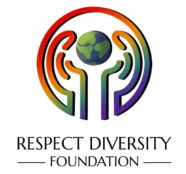About 10 days ago the Jewish community observed Yom Hashoah, Holocaust Remembrance Day. I attended and watched a stirring presentation on the “Monuments Men,” who bravely scoured Nazi occupied areas to recover and return art and precious belongings stolen from Jews and others they considered to be “untermensch “(a person considered racially or socially inferior). After this followed the lighting of eleven candles; six, for the six million Jews murdered, and five for the five million other innocent victims of the Nazis. Then, solemnly, members of the Jewish community personally touched by the Holocaust each came forward to light one of the eleven candles. While they were walking, the stories of each family’s encounter with that horror were told briefly. Several of them were just babies at the time their families were destroyed by the Nazis. One survivor was a child of rape of a Jewish woman by a member of the SS. All told, one and a half million children were murdered in the Holocaust. Each of them had personal knowledge of being thought of as “less than,” as dispensable, by strangers. Yet all of them were precious children in their parents’ eyes.
I have two daughters, and they are precious to me. There are several things I want for them in life, some of which I have the ability to help them realize, some of which I don’t. Most importantly, though, I want safety and security for them, the warmth of friends and loved ones, the peace of knowing they are accepted and loved as they are. I have never spoken to a parent who would not say this about his or her child. Our common desire is to ensure our loved ones are always seen as human, valuable, contributing to the good in the world. If we allow anyone to begin telling us who is more, or less, worthy, who deserves to be here and who does not, we are traveling the road to harm. And our children will be in that road.
While the feelings of love and protectiveness start with our own family members and perhaps members of our self-identified communities, these feelings can be extended to others, to everyone’s benefit. When there is no “them,” the group called “us” is one and prospers. Remember, it is in my best interest too that I think of others the way I think of myself, and act accordingly. When I see your child as a precious human, and seek the best for her, all of us win.
The Common Ground Community is about us actively getting to know each other, learning as much as we can about our differences and our shared humanity, and then working to protect each other. All of us. Let’s get started.
—
Noel Jacobs, PhD
Program Director, The Respect Diversity Foundation
Developer, The Common Ground Community of Oklahoma

Comments are closed.